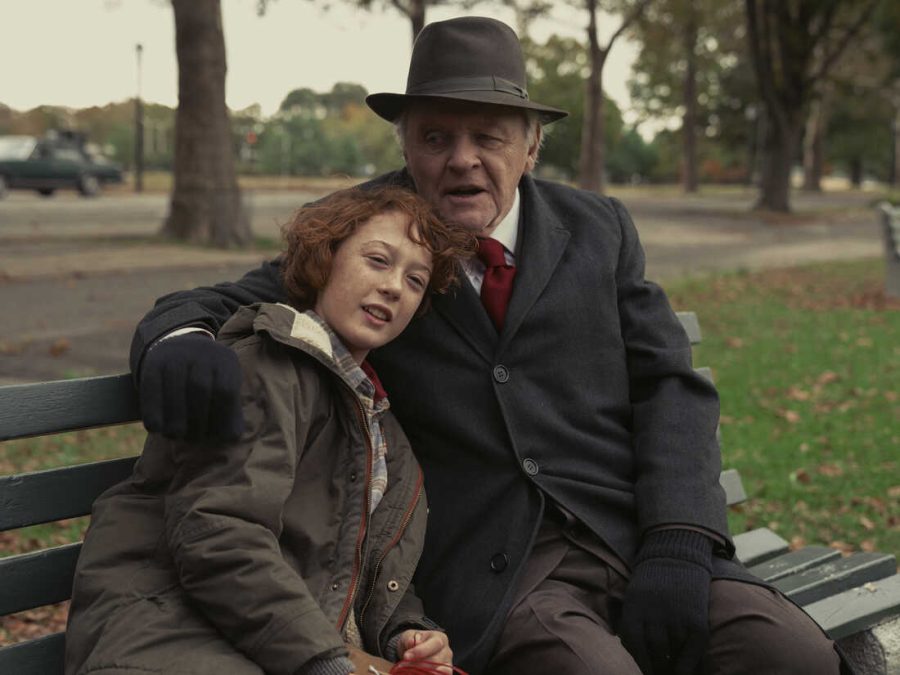In ‘Armageddon Time’ James Gray Colors His Nostalgia with White Guilt
“Armageddon Time” (Courtesy YouTube)
November 9, 2022
The axiom that the personal is political is given display in filmmaker James Gray‘s latest film “Armageddon Time.” In the vein of “The 400 Blows,” “Roma” and “Belfast,” “Armageddon Time” is a deeply personal memory film about filmmaker James Gray’s childhood. It tells the story of growing up as the descendant of Jewish immigrants in 1980’s Queens, New York.
Many moments within “Armageddon Time” have a lived-in texture, offered to it from the details it presents of a messy family and an understanding of the Jewish experience in the United States. Unfortunately the movie is hindered through Gray being too close to the material. “Armageddon Time” does not have the detachment necessary to tell its story, and as Gray’s stand-in, Paul Graff, has his eyes opened to the racism faced by a close Black friend, the movie lacks the moral complexity and introspection that it desperately wants.
Racism and Privilege Through the Eyes of a Child
Paul, played with great sensitivity by Banks Repeta, begins the movie attending a run-down public school where he is chastised for daydreaming in class. Paul befriends a likewise rebellious classmate, Johnny Davis (Jaylin Webb), who already understands that the cards are stacked against him because of the color of his skin.
At home, the only one who Paul seems to be able to connect with is his kind and wise grandfather (Anthony Hopkins). Paul’s grandfather supports his artistic aspirations and encourages him to “be a mensch.” Paul’s parents, played by Jeremy Strong and Anne Hathaway, are middle-class liberals who strongly feel the anti-Semitism present in their lives and decry Ronald Reagan’s ascendance to presidency. They also frequently voice anti-Black sentiments and preach the need to assimilate into white society to Paul.
What was once referred to as “race relations” is at the center of “Armageddon Time.” As the movie chugs along, Paul faces various challenges to menschiness, trying to parse through the contradictory messages about racism and privilege.
Old-Fashioned Liberal Message Movie
Despite trying to dress it up in a coat of self-flagellation and cynicism, “Armageddon Time” is an old-fashioned liberal message movie. It’s nothing more than a modern version of “Imitation of Life” or “The Defiant Ones.” As an audience we are supposed to be charmed by Paul and Johnny’s friendship and the way that innocent children can cross racial borders. When the two get into trouble and Johnny catches the brunt of it, we are supposed to shake our head in disappointment at the world.
There’s something disconcerting about the way that the story relegates the experiences of Johnny to the sidelines. “Armageddon Time” only seems to care about Johnny as far as they can use him. The racism that he faces on the daily is only shown in order to teach Paul moral lessons. In his review for “Mashable,” Robert Daniels notes how poorly Johnny’s skin is lit, dampening down his personhood and, at times, blending him in with the shadows.
By the end, “Armageddon Time’s” presentation of 1980’s Queens doesn’t feel clear-eyed and honest, but colored by white guilt.








